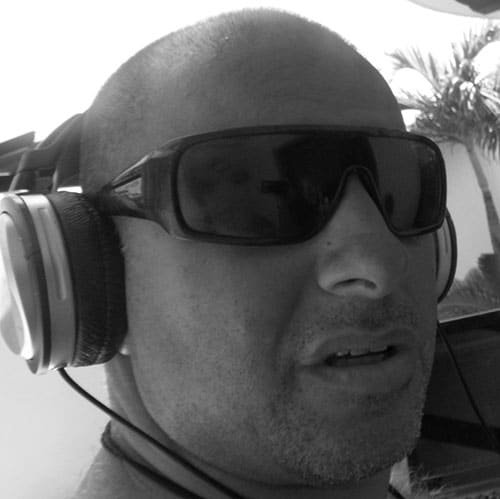“A delightfully original take on…the prospects for liberal democracy in the broader Islamic Middle East.”—Matthew Kaminski, Wall Street Journal
As the Arab Spring threatens to give way to authoritarianism in Egypt and reports from Afghanistan detail widespread violence against U.S. troops and women, news from the Muslim world raises the question: Is Islam incompatible with freedom?
In Islam without Extremes: A Muslim Case for Liberty, Turkish columnist Mustafa Akyol answers this question by revealing the little-understood roots of political Islam, which originally included both rationalist, flexible strains, and more dogmatic, rigid ones.
Though the rigid traditionalists won out, Akyol points to a flourishing of liberalism in the nineteenth-century Ottoman Empire and the unique “Islamo-liberal synthesis” in present-day Turkey. As he powerfully asserts, only by accepting a secular state can Islamic societies thrive? Islam without Extremes offers a desperately needed intellectual basis for the reconcilability of Islam and liberty.
REVIEW
It is challenging to write a book based on religion and history with a convincing case relevant to modern times. I think the Turkish Journalist Mustafa Akyol has successfully met this challenge and presented an exceedingly compelling and convincing case for Liberal Islam.
I loved the way he described Abu Hanifa the pioneer of the juristic side of the rationalist school, the Mutazilite philosophy, and the war of ideas between the Traditionalists and Rationalists throughout the history of Islam.
Akyol highlighted the link between economic prosperity and freedom of religious ideas, illustrating how the School of Tradition cut off the young Islamic community from the economic mainstream.
By isolating Muslims from doing trade with nonbelievers, severely affects every aspect of life from economy to art, language, science, and many resources.
He also addresses a particularly tricky issue; “the rise of hadith” and the theory of abrogation in what is described as the “Post Quar’anic ideology”. In fact, if anyone wants a medical diagnosis of what went wrong in Islam, then look within some aspects of this ideology, for example, the distaste of some toward “innovation”.
Throughout the book, Akyol incorporates lessons from Turkey (Both Ottomans & Kemalists).
Akyol described the Ottoman Empire as a pluralist state (a description
that I struggle to agree with). Yes, the state was tolerant of non-Muslims, but reforms and modernization only took place in the later period of Ottoman rule.
During the early period, the empire was strong and powerful but many of its subjects particularly non-Turks were oppressed and lost their national identity without gaining equal rights. Sadly, the process of modernization came a bit late; the seeds of hatred and separatism were already planted in the heart and minds of many Ottoman subjects.
Akyol rightly rejects authoritarian regimes, even in their mild form. The attempt to push religion out of Muslim minds was proven counterproductive, and it failed drastically both in Turkey and Iran. However, Akyol clearly illustrates how the various rulers throughout Islamic history (as early as the Umayyads & Abbasids) manipulated religion for their political needs. This basic historical fact should justify a degree of secularism provided it “allows freedom of religion not freedom from religion”.
The book also illustrates how Kemalism nationalism has helped to destroy the religious identity in Turkey. However, a complete lack of national identity can also be counter-productive. Arab states lost their national identity under the Ottomans’ rule, and they paid a hefty price following the collapse of the empire.
The Arabs painfully had to watch colonial powers carving their lands to create new nations (even artificial ones), which had an immense knock-on effect that is still valid in modern days. It opened the door for nationalist, socialist dictatorship, and religious extremism to fell the gap. Nationalism, as well as, secularism (in small doses) is not incompatible with Islam and can be accepted in a free liberal Islamic democratic society.
The last two chapters “freedom to sin” and “freedom from Islam” is simply delightful. Akyol clearly highlighted the clear distinction in Sharia between the rights of God and the right of people. Also, how the earthly punishment for apostasy is not Qur’anic but post Qur’anic.
His statement ” Replacing the fear of God with the fear of state or community could only be an obstacle to heart-felt piety” reflect the style and the message of the whole book.
I guess the question is, how to convince the masses to embrace liberal Islam? How to protect the rationalist school of thought from the overzealous of some? How to prevent past mistakes and secure a better future for Muslims?
Muslims need to reflect on their past and present and come up with answers to these questions. The Arab spring provides a golden opportunity for Muslims to move on from the shadow of extremism and embark on the road of rationalism as the way to a better future.
Book Author Biography
Mustafa Akyol, an advocate of “Muslim liberalism,” is a columnist for two Turkish newspapers, Hürriyet Daily News and Star. His articles have also appeared in publications such as Foreign Affairs, Newsweek, Washington Post, Wall Street Journal and International Herald Tribune. He studied political science and history at the Boğaziçi University in Istanbul, where he still lives. You can visit his website at TheWhitePath.com
Buy Islam without Extremes: A Muslim Case for Liberty on Amazon.com >>>

Johnny Punish founded VT in 2004. After 20 years at the helm, he “retired” from the daily operations in late 2023 passing the ball over to the new owner of VT, Chief Justin Time. He now writes for VT as “Writer Emeritus”. He is also a global citizen eco-activist, visionary, musician, artist, entertainer, businessman, investor, life coach, podcast host, and syndicated columnist.
Punish is an ethnically cleansed Palestinian-American whose maternal family was evicted from their home in Haifa, Palestine in 1948 by Irgun; a Euro-Zionist Settler Terrorist Group. The family became part of the over 1,000,000 Palestinians who are Al-Nakba refugees (The Catastrophe). The family fled to Beirut Lebanon for 13 years eventually emigrating to the USA in 1961 via a Brasilian passport obtained by his Palestinian Brasilian-born grandmother (In the early 1900s, the family was sent to Sao Paolo Brasil as guest workers in the mining industry. Punish’s father is Italian-American from New York City. Punish’s paternal great-grandparents emigrated to the USA from Naples Italy and Marineo in Sicily in the 1890s. Punish was born in the Bronx, New York in 1963.
Punish was educated at the University of Nevada Las Vegas (1980-81) and California State University Fullerton (1981-1984) with studies in accounting and business. Before the “internets” had been invented, he owned and ran (5) national newspapers in the United States of America from 1987-1998. From 2004 to 2023, he owned and managed VT Foreign Policy retiring at the end of 2023.
Punish is also a recording artist. He has over 100 original songs written. He records and produces music. A member of ASCAP, Punish has several songs placed in feature films. His music is promoted worldwide and played on all digital networks and net radio.
He is also the founder and owner of Global Thinkers, a freedom media that helps free thinkers create real wealth.
Resources: Facebook – YouTube – Apple Music – SoundCloud – Spotify – X (Twitter)
Read Johnny’s Full Bio at JohnnyPunish.com >>>
ATTENTION READERS
We See The World From All Sides and Want YOU To Be Fully InformedIn fact, intentional disinformation is a disgraceful scourge in media today. So to assuage any possible errant incorrect information posted herein, we strongly encourage you to seek corroboration from other non-VT sources before forming an educated opinion.
About VT - Policies & Disclosures - Comment Policy




